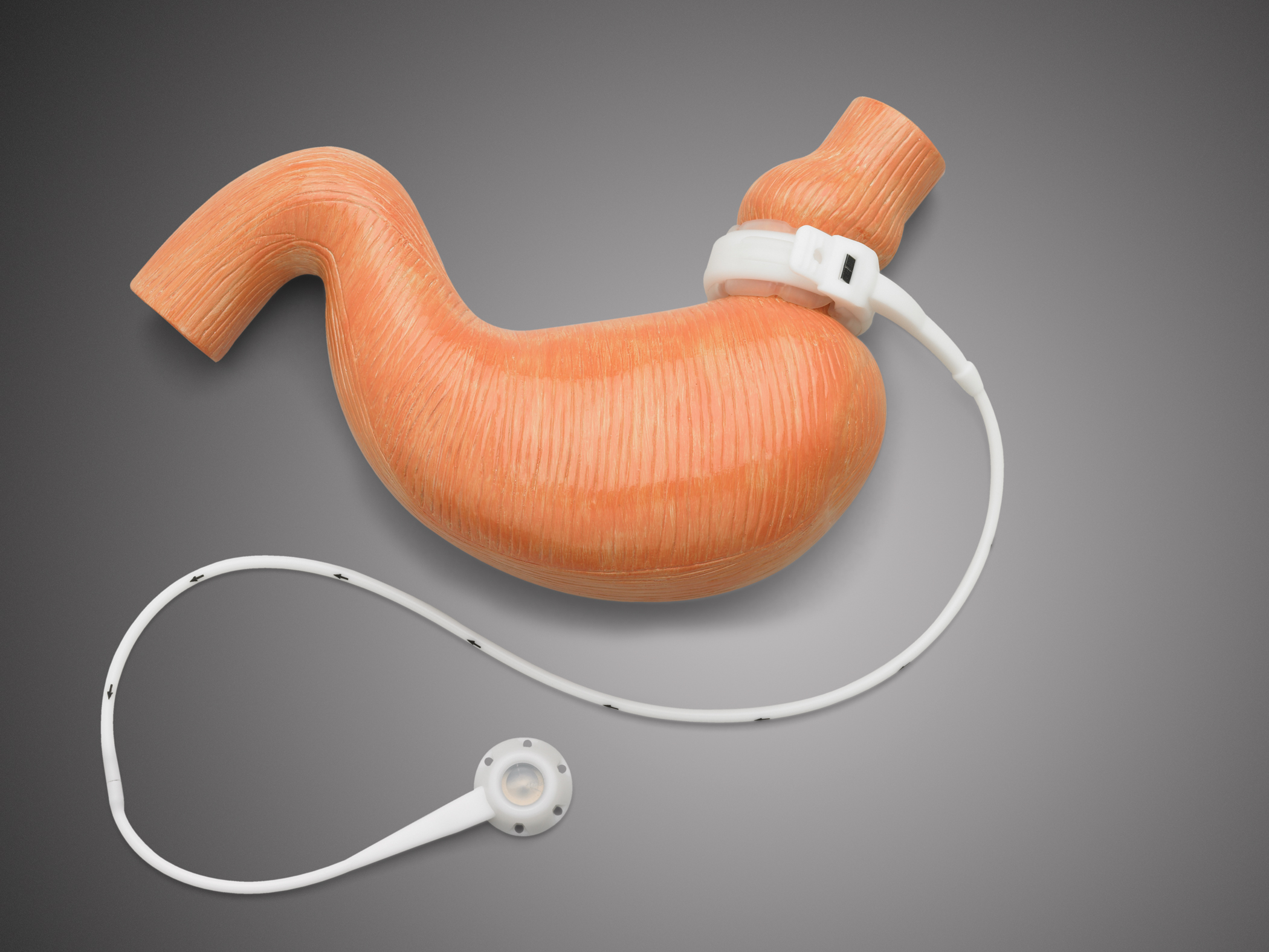Is the Lap-Band for You?

Risks with the Lap-Band
First, let’s take a look at some of the possible risks or complications that can happen with the band. Nearly all patients get some sort of complications or side effects, but not necessarily severe ones. Excessive bleeding and blood clots are risks that you take with any surgery. Of course you’ll have abdominal pain as you recover from lap-band surgery; after all, your surgeon had to make cuts in your stomach to put the lap-band in place.
These are some of the other risks with the lap-band:
-
band slippage
-
leakage
-
band erosion
-
esophageal dilation
-
nausea
-
vomiting
-
trouble swallowing (dysphagia)
-
obstruction
-
constipation
Many of the complications are more common in patients whose starting weight (or BMI) is higher. That’s obviously a potential drawback for higher-BMI patients, but it’s also important to look at the alternatives. If your BMI is higher, you’re at higher risk for obesity-related health problems if you don’t lose weight. Also, many of the complications are preventable if you carefully follow your surgeon’s post-operation instructions, especially regarding your diet.
Weight Loss to Expect
We know; here’s what you’re really interested in! How much weight will the lap-band help you lose? The numbers vary, but within a year of getting the lap-band and following the lap-band diet, you might expect to lose a significant amount of your excess weight. Your excess weight is the number of pounds over your goal weight, and you might be able to lose 40 percent – or more – in a year. Many patients have been able to maintain their weight loss for five or more years. That’s great news if you’re sick of watching your weight cycle as you try diet after diet!
The amount of weight you lose and whether you keep it off depends on you. To control your weight, you need to stick to your lap-band diet. These are the basic requirements of the lap-band diet:
-
Choose nutritious foods
-
Avoid high-calorie, low-nutrient foods
-
Avoid beverages with calories
-
Eat small portions
-
Limit snacking
Exercise helps burn calories and speeds up weight loss, too!
Are You a Candidate for the Lap-Band?
Not everyone is eligible to get the lap-band. You have to meet certain criteria before you can get the lap-band. These are some of the normal requirements. Some of them are set by the FDA; others might be required by your insurance company or surgeon:
-
Being at least 30 pounds overweight, with a BMI of at least 40 or a BMI of 30 to 40 along with an obesity-related health condition.
-
Having struggled with your weight for at least five years, and having a history of unsuccessful dieting attempts.
-
Being willing to attend educational seminars about the lap-band to learn about the procedure.
-
Following a special diet program before your surgery to demonstrate that you’re able to do it.
-
Promising to follow your surgeon’s aftercare program, which may include follow-up appointments, dietitian visits and group support meetings with other lap-band patients.
A contraindication is a condition that makes you ineligible or a poor candidate for getting the lap-band. These are some of the common contraindications:
-
Heart or lung problems that can make your surgery dangerous
-
Drug or alcohol addiction
-
Low pain tolerance (you will feel pain after getting banded)
-
Unwillingness to commit to the lifestyle changes and lap-band diet necessary for losing weight and preventing complications
-
Pregnancy or planning to become pregnant within a year
Since the lap-band has such a long history, there’s been a lot of research done on the risks and benefits of the procedure. Chapter 4, “Is the Lap-Band the Right Choice for You?,” in The BIG Book on the LAP-BAND, goes through this research in more detail than this short summary. You’ll get to see some of the particular numbers, such as average pounds lost or percentages of patients who have specific complications. This information, together with seeing the eligibility criteria, can help you make an informed decision about whether the lap-band is right for you.
this band saved my life. i was lucky to have a dr who told me (that unless i changed how i eat, and started exercising) no matter what surgery i got, it would not be successful.
i find too many people are seeing this as an easy diet, or easy way out and a miracle and once they have surgery, they are eating like they use too or griping about no restriction or diverting off dr's orders.
you have to help the lap band work.
so if someone wants to get this, they need to change their entire attitude, their life and just want it bad enough to make it happen.
no excuses
Thanks Alex. This site has given me the support I need during this journey. I know with the friends I have here I can continue my lap band journey into maintaining my goal weight.





dee257 1,516
Posted
I honestly could not have done as well as I have with out this site....so many li things I learned here before they came up for me...I am truely greatful for this site !
Share this comment
Link to comment
Share on other sites